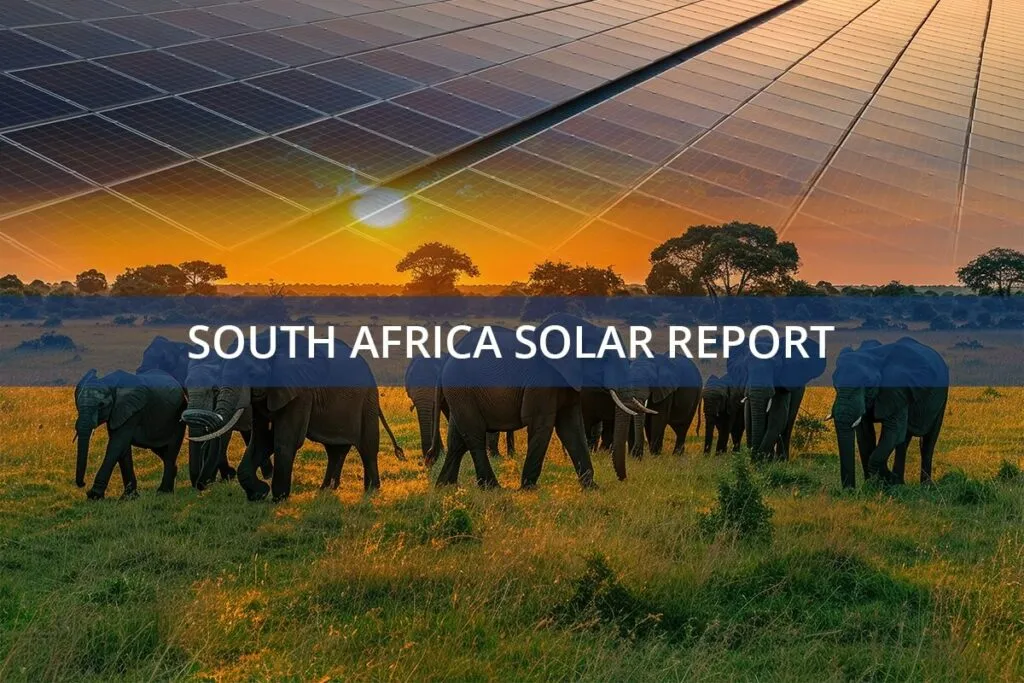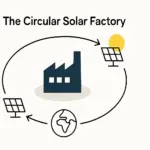How Tax Incentives Sparked a Solar Revolution in South Africa
South Africa’s solar industry is experiencing an unprecedented boom, largely fueled by strategic government tax incentives. These measures, introduced in the 2024 budget, have catalyzed a massive increase in solar imports and installations, reshaping the nation’s energy future and providing much-needed relief from a persistent energy crisis. This surge aligns with a global trend, which saw a record 585 GW of new renewable capacity added worldwide in 2024, with solar photovoltaics accounting for the lion’s share.
The Game-Changing South Africa solar incentives
To accelerate the shift towards renewable energy and lessen the reliance on the strained national grid managed by Eskom, the government introduced two powerful tax incentives.
-
25% Rebate for Individuals: Homeowners can claim a 25% tax rebate on the cost of new and unused solar panels, up to a maximum of R15,000 (approximately $800). This incentive was specifically for panels put into use for the first time between March 1, 2023, and February 29, 2024.
-
125% Deduction for Businesses: In a significant move to encourage commercial adoption, businesses can claim a 125% deduction on the full cost of solar energy investments from their taxable income. This means for every R100 a business invests in a qualifying solar project, it can reduce its taxable income by R125. This incentive applies to projects brought into use between March 1, 2023, and February 28, 2025.
A Surge in Solar Adoption
These incentives have proven to be a game-changer for the country’s solar sector, unlocking significant private investment. Treasury data reveals that solar panel imports more than doubled in the first eight months of the year compared to the same period last year. The South African Photovoltaic Industry Association (SAPVIA) corroborates this explosive growth, reporting that solar installations surged by an astonishing 600% in the first quarter alone.
This rapid adoption is profoundly transforming South Africa’s energy landscape. According to SAPVIA, the country added an impressive 2.5 gigawatts of solar capacity in just the first quarter of the year. This new capacity has played a crucial role in reducing the severity and frequency of load-shedding, bringing tangible benefits to citizens and the economy.
Driving Economic Growth and Local Manufacturing
The solar boom is not only addressing the country’s energy crisis but is also a powerful engine for economic growth. The industry has created thousands of jobs in installation, maintenance, and sales, attracting significant local and international investment.
Looking ahead, the Industrial Development Corporation (IDC) has announced ambitious plans to establish a domestic solar manufacturing hub. This initiative aims to build local capacity and reduce reliance on imports. Establishing such a hub requires a deep understanding of the entire solar panel manufacturing process, from sourcing the correct solar panel raw materials to investing in complex solar panel manufacturing machines. A thorough solar panel manufacturing plant cost breakdown highlights the significant investment needed, but the long-term economic benefits—including job creation and technological advancement—are immense. For those interested in the fundamentals, understanding the basics of solar panel manufacturing is a great starting point.
Navigating the Challenges of the Energy Transition
Despite this rapid progress, South Africa’s energy transition is not without its challenges. The nation remains heavily reliant on coal, which still accounts for the majority of its electricity generation. Integrating a growing number of decentralized renewable energy sources also presents technical challenges for grid stability and infrastructure. Furthermore, a “just transition” must be managed carefully to protect workers and communities historically dependent on the fossil fuel sector.
However, the government and key stakeholders are committed to diversifying the country’s energy mix and systematically reducing its carbon footprint.
A Bright Future for South Africa solar incentives
The resounding success of the solar tax incentives demonstrates the power of well-designed policy to drive transformative change. By making solar adoption financially attractive, the government has accelerated the move to renewable energy, directly addressed the energy crisis, and stimulated economic activity. The future looks bright for South Africa’s solar sector, with industry leaders and experts gathering at events like Intersolar Africa 2025 to chart the course forward. The nation is now well-positioned to become a formidable leader in the global renewable energy market.
If you are inspired by this solar revolution and want to learn more about the industry, you can start your journey with our free e-course on solar panel manufacturing.



